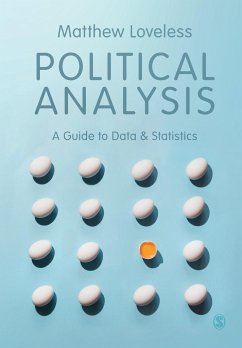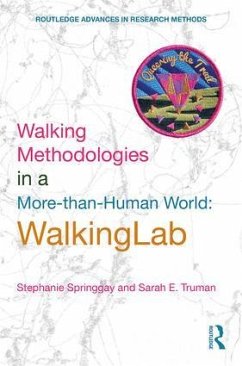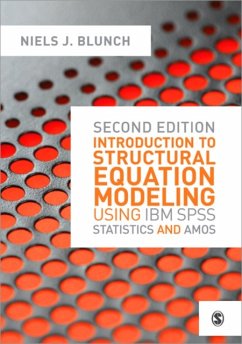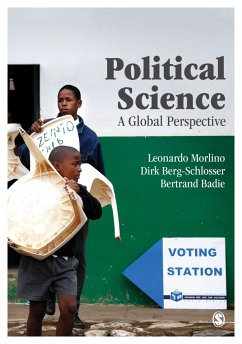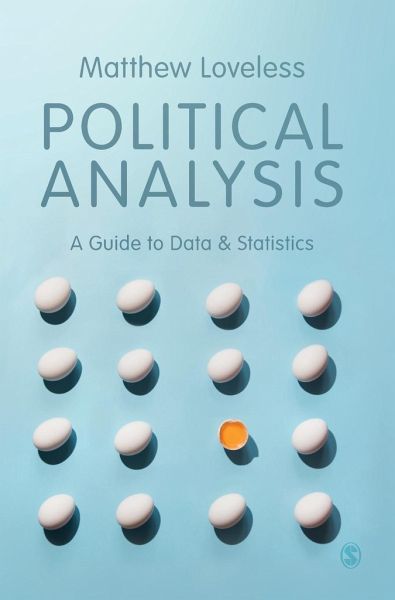
Political Analysis
A Guide to Data and Statistics
Versandkostenfrei!
Versandfertig in 6-10 Tagen
84,99 €
inkl. MwSt.
Weitere Ausgaben:

PAYBACK Punkte
42 °P sammeln!
Why let other people explain the world to you?From news reporting on elections or unfolding political crises to everyday advertising, you are confronted with statistics. Rather than being swayed by bad arguments and questionable correlations, this book introduces you to the most common and contemporary statistical methods so that you can better understand the world. It's not about mindless number crunching or flashy techniques but about knowing when to use statistics as the best means to analyse a problem.Whether you want to answer:Who is most likely to turn out and vote at the next election?o...
Why let other people explain the world to you?
From news reporting on elections or unfolding political crises to everyday advertising, you are confronted with statistics. Rather than being swayed by bad arguments and questionable correlations, this book introduces you to the most common and contemporary statistical methods so that you can better understand the world. It's not about mindless number crunching or flashy techniques but about knowing when to use statistics as the best means to analyse a problem.
Whether you want to answer:
Who is most likely to turn out and vote at the next election?
or
What accounts for some political conflicts escalating to war?
you ll explore what can and can t be done with statistics, and how to select the most appropriate statistical techniques and correctly interpret the results.
Perhaps you simply want to understand enough to pass your statistics class and moveon. Maybe you want to build your knowledge so that you are not excluded from research and debate. Or it could be the first step towards more advanced study. Whatever your goal, this book guides you through the journey, empowering you to confidently interact with statistics to make you a more formidable student, employee, and democratic citizen.
From news reporting on elections or unfolding political crises to everyday advertising, you are confronted with statistics. Rather than being swayed by bad arguments and questionable correlations, this book introduces you to the most common and contemporary statistical methods so that you can better understand the world. It's not about mindless number crunching or flashy techniques but about knowing when to use statistics as the best means to analyse a problem.
Whether you want to answer:
Who is most likely to turn out and vote at the next election?
or
What accounts for some political conflicts escalating to war?
you ll explore what can and can t be done with statistics, and how to select the most appropriate statistical techniques and correctly interpret the results.
Perhaps you simply want to understand enough to pass your statistics class and moveon. Maybe you want to build your knowledge so that you are not excluded from research and debate. Or it could be the first step towards more advanced study. Whatever your goal, this book guides you through the journey, empowering you to confidently interact with statistics to make you a more formidable student, employee, and democratic citizen.





